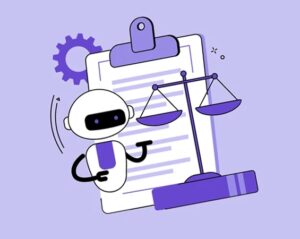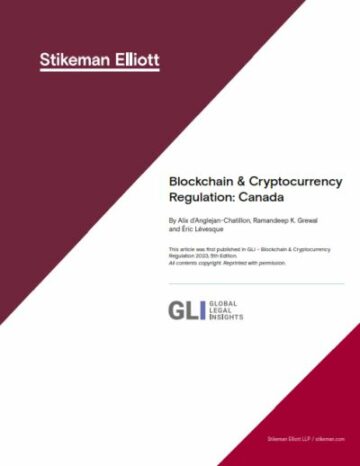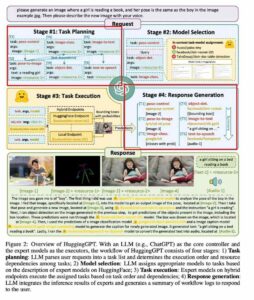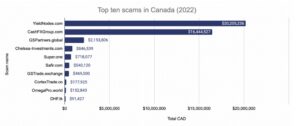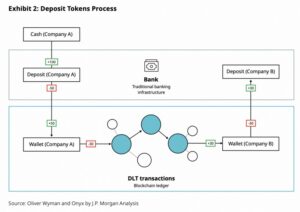Regulation | Nov 29, 2023
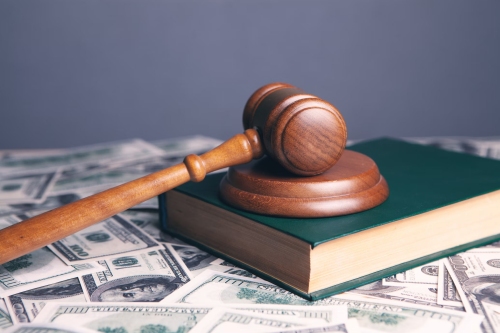
 Image: Unsplash/Sasun Bughdaryan
Image: Unsplash/Sasun BughdaryanElon Musk and Mark Cuban Support Legal Challenge Against SEC's In-House Judges
Elon Musk and Mark Cuban are backing hedge-fund manager George Jarkesy in a significant legal battle against the Securities and Exchange Commission (SEC). This case, now before the US Supreme Court, questions the SEC's use of in-house judges for imposing penalties. Jarkesy's argument, supported by Musk and Cuban, is centered on the constitutional right of defendants in SEC cases to have a jury trial. This challenge could reshape how the SEC and potentially other regulatory bodies like the Federal Trade Commission conduct their enforcement actions.
The Problems with Conflicts and Power Imbalance
Background on George Jarkesy's Case
- George Jarkesy, accused by the SEC in 2013 of misleading investors, is challenging the SEC's internal judicial process. He argues for the right to a federal jury trial in such cases. The Supreme Court is considering whether to limit the SEC's ability to use in-house judges, a decision that could significantly impact the agency's enforcement strategy.
- A ruling in favor of Jarkesy could affect not only the SEC but also other federal agencies that use in-house judges, like the Federal Trade Commission. Critics of the SEC's current system argue it lacks fairness, as defendants have limited rights compared to those in federal courts, and the SEC decides which cases are handled in-house.
See: Hester Peirce Reaffirms That the SEC’s Current Approach to Crypto Is ‘Not a Good Way of Regulating’
- Elon Musk and Mark Cuban, both of whom have had their own run-ins with the SEC, are supporting Jarkesy's case, highlighting its potential impact on future SEC enforcement actions.
Importance of the Case
This case challenges the fundamental process of how regulatory bodies like the SEC conduct enforcement. A decision in favor of Jarkesy could lead to more defendants opting for jury trials, potentially making it harder for the SEC to secure settlements and enforce regulations. It also raises significant questions about the balance of power between regulatory agencies and the rights of individuals and companies in the financial sector. The decision, expected by June 2024, will be closely watched by investors, legal experts, and regulatory bodies.
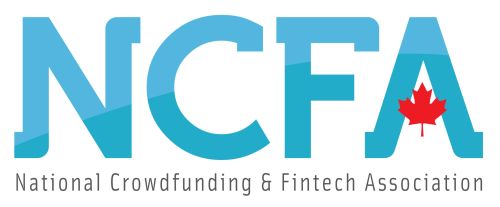
 The National Crowdfunding & Fintech Association (NCFA Canada) is a financial innovation ecosystem that provides education, market intelligence, industry stewardship, networking and funding opportunities and services to thousands of community members and works closely with industry, government, partners and affiliates to create a vibrant and innovative fintech and funding industry in Canada. Decentralized and distributed, NCFA is engaged with global stakeholders and helps incubate projects and investment in fintech, alternative finance, crowdfunding, peer-to-peer finance, payments, digital assets and tokens, artificial intelligence, blockchain, cryptocurrency, regtech, and insurtech sectors. Join Canada's Fintech & Funding Community today FREE! Or become a contributing member and get perks. For more information, please visit: www.ncfacanada.org
The National Crowdfunding & Fintech Association (NCFA Canada) is a financial innovation ecosystem that provides education, market intelligence, industry stewardship, networking and funding opportunities and services to thousands of community members and works closely with industry, government, partners and affiliates to create a vibrant and innovative fintech and funding industry in Canada. Decentralized and distributed, NCFA is engaged with global stakeholders and helps incubate projects and investment in fintech, alternative finance, crowdfunding, peer-to-peer finance, payments, digital assets and tokens, artificial intelligence, blockchain, cryptocurrency, regtech, and insurtech sectors. Join Canada's Fintech & Funding Community today FREE! Or become a contributing member and get perks. For more information, please visit: www.ncfacanada.org Related Posts
- SEO Powered Content & PR Distribution. Get Amplified Today.
- PlatoData.Network Vertical Generative Ai. Empower Yourself. Access Here.
- PlatoAiStream. Web3 Intelligence. Knowledge Amplified. Access Here.
- PlatoESG. Carbon, CleanTech, Energy, Environment, Solar, Waste Management. Access Here.
- PlatoHealth. Biotech and Clinical Trials Intelligence. Access Here.
- Source: https://ncfacanada.org/exploring-the-controversy-of-secs-in-house-judges/
- :has
- :is
- :not
- 15%
- 150
- 200
- 2013
- 2018
- 2023
- 29
- 300
- 32
- a
- ability
- About
- access
- accused
- actions
- administrative
- affect
- affiliates
- against
- agencies
- agency
- allow
- also
- alternative
- alternative finance
- American
- an
- and
- appointment
- approach
- ARE
- argue
- Argues
- argument
- around
- artificial
- artificial intelligence
- AS
- aspect
- Assets
- Assistant
- At
- backed
- backing
- Balance
- Battle
- BE
- become
- before
- between
- biased
- Bill
- blockchain
- bodies
- both
- Branch
- bring
- broader
- but
- by
- cache
- CAN
- Canada
- case
- cases
- centered
- central
- challenge
- challenges
- Changes
- closely
- commission
- community
- Companies
- compared
- Concerns
- Conduct
- conducts
- conflicts
- considering
- controversy
- could
- Court
- Courts
- create
- creates
- Critics
- Crowdfunding
- crypto
- cryptocurrency
- cuban
- Current
- Dark
- decentralized
- decide
- decision
- decisions
- defendants
- determining
- digital
- Digital Assets
- directly
- Disadvantage
- discovery
- discretion
- distributed
- ecosystem
- Education
- effectively
- efficiently
- Elon
- Elon Musk
- enforce
- enforcement
- engaged
- Ether (ETH)
- evidence
- example
- exchange
- Exchange Commission
- executive
- expected
- experts
- Exploring
- faced
- fairness
- favor
- Federal
- Federal Trade Commission
- finance
- financial
- financial innovation
- Financial sector
- fintech
- For
- Forum
- from
- fundamental
- funding
- funding opportunities
- future
- George
- get
- Giving
- Global
- Go
- good
- Government
- had
- Have
- he
- heard
- Held
- helps
- here
- Hester Peirce
- High
- Highlight
- highlighting
- How
- http
- HTTPS
- if
- image
- Impact
- implications
- imposing
- in
- Including
- individuals
- industry
- influencing
- information
- initial
- Innovation
- innovative
- instead
- Insurtech
- Intelligence
- internal
- investment
- investor
- investor protection
- Investors
- involved
- issue
- issues
- IT
- ITS
- Jan
- jpg
- judge
- judges
- judicial
- june
- Key
- Law
- Laws
- lead
- Legal
- legal experts
- less
- light
- like
- LIMIT
- Limited
- Making
- manager
- mark
- Mark Cuban
- Market
- max-width
- May..
- meaning
- member
- Members
- misleading
- money
- more
- much
- Musk
- networking
- nov
- now
- of
- often
- on
- ongoing
- only
- opportunities
- or
- organization
- Other
- Outcome
- Oversight
- own
- part
- partners
- payments
- peer to peer
- perks
- plato
- Plato Data Intelligence
- PlatoData
- please
- points
- potential
- potentially
- power
- primarily
- Problem
- problems
- Proceedings
- process
- projects
- protection
- provides
- put
- Questions
- raises
- reaffirms
- Regtech
- Regulation
- regulatory
- reshape
- Reuters
- revolves
- right
- rights
- ruling
- s
- same
- SEC
- SEC enforcement
- SEC enforcement actions
- sector
- Sectors
- secure
- Securities
- Securities and Exchange Commission
- Securities Laws
- seen
- Services
- Settlements
- several
- significant
- significantly
- some
- Spending
- stakeholders
- Stewardship
- Strategy
- such
- support
- Supported
- Supporting
- Supreme
- Supreme Court
- system
- that
- The
- their
- These
- they
- this
- those
- thousands
- to
- today
- Tokens
- too
- trade
- trial
- trials
- typically
- Unsplash
- us
- use
- using
- Venue
- vibrant
- Visit
- vs
- Way..
- whether
- which
- WHO
- whom
- will
- with
- works
- would
- zephyrnet

